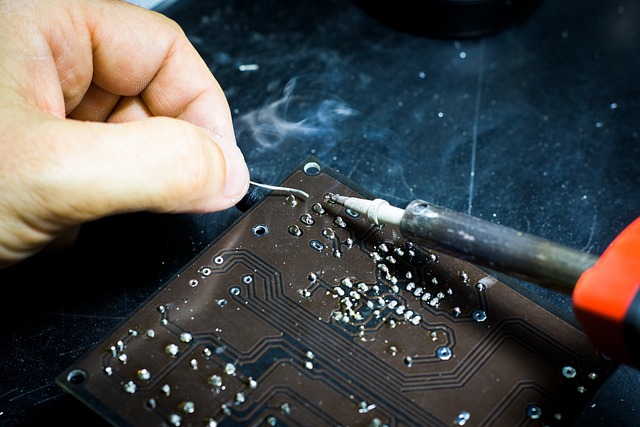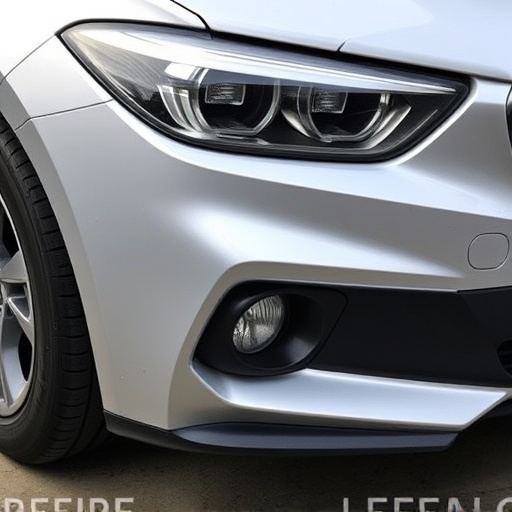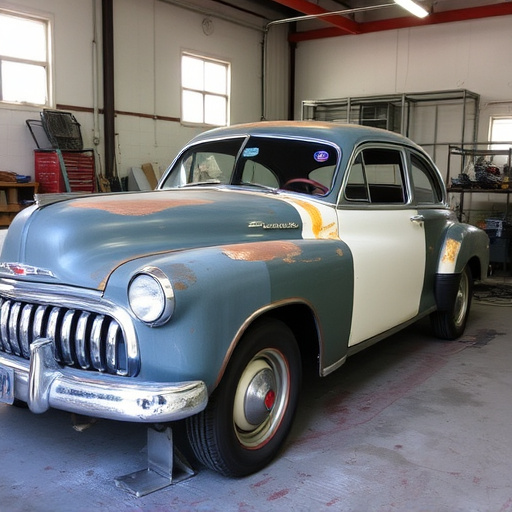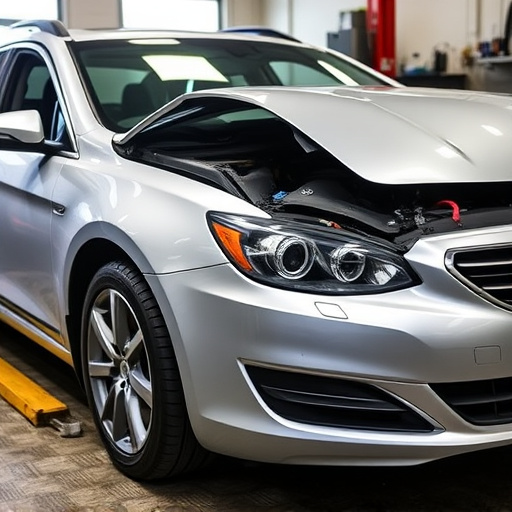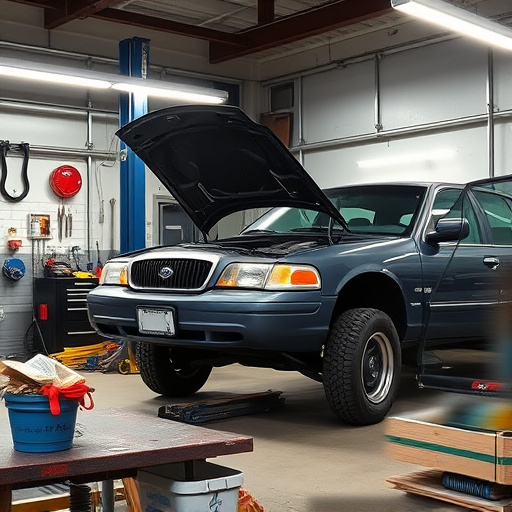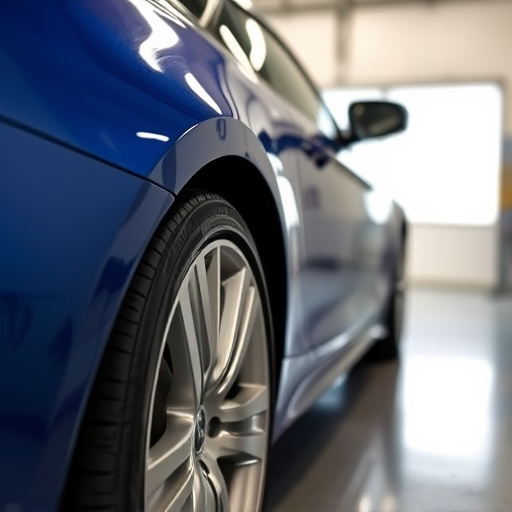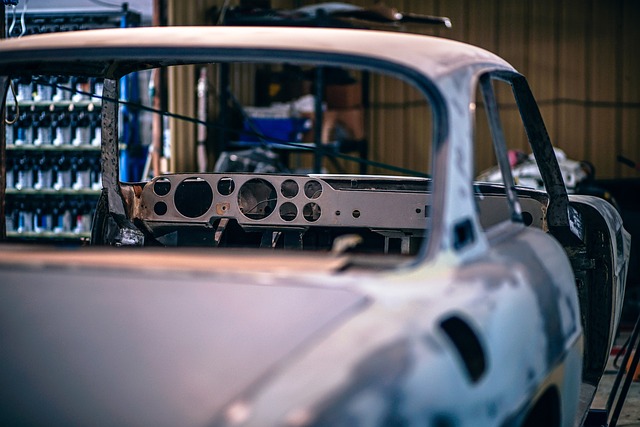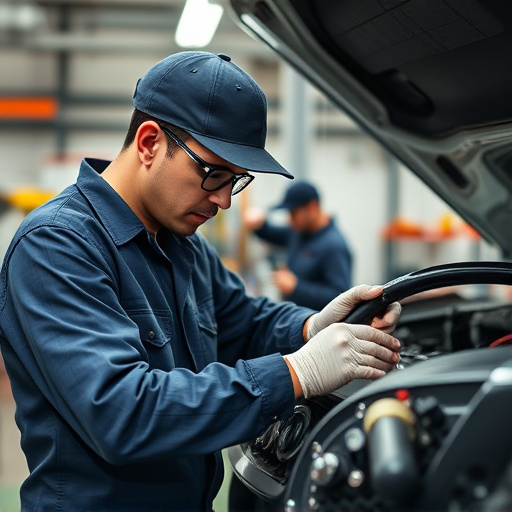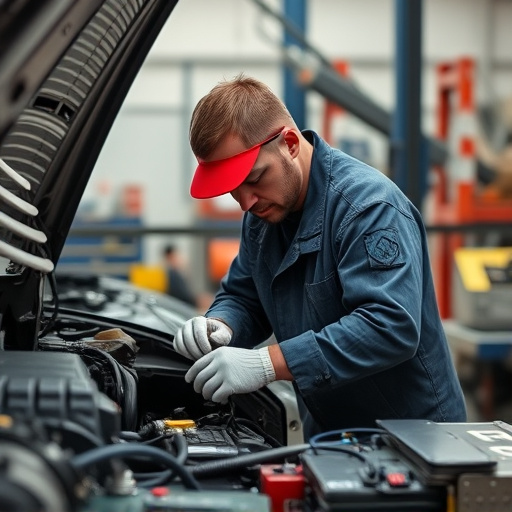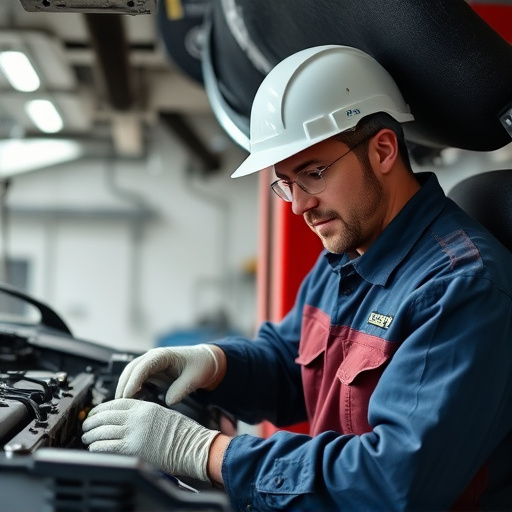Corrosion, a natural process causing metal degradation, poses significant threats to industries and vehicles, leading to costly repairs. Anti-corrosion materials act as protective barriers, mitigating environmental damage and reducing maintenance needs in manufacturing and automotive sectors. The global market offers diverse solutions, from coatings to polymers, enhancing vehicle durability and infrastructure longevity while saving costs and promoting sustainability.
In the pursuit of efficient and cost-effective infrastructure management, understanding and mitigating corrosion is paramount. This article delves into the world of anti-corrosion materials, offering a comprehensive guide to safeguarding against this insidious enemy that erodes assets and inflates maintenance costs. From exploring various anti-corrosion solutions to highlighting their substantial long-term savings, we provide insights that can revolutionize your approach to material selection.
- Understanding Corrosion: The Enemy Within
- Exploring Anti-Corrosion Materials: A Comprehensive Look
- Long-Term Savings: Benefits of Incorporating Anti-Corrosive Solutions
Understanding Corrosion: The Enemy Within
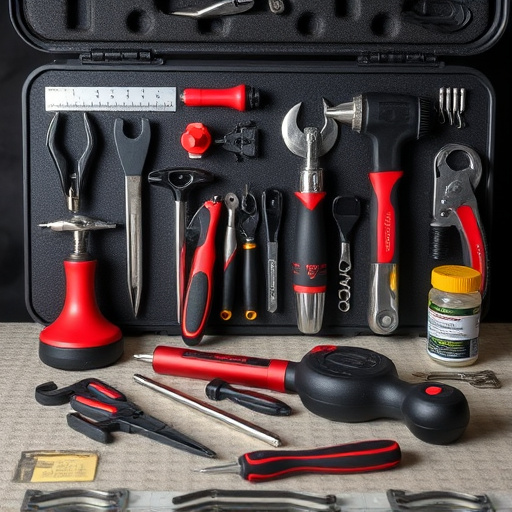
Corrosion is a silent but costly enemy that lurks within many industrial and automotive systems. It’s a natural process where metals react with substances like water and oxygen, leading to degradation and eventual failure. This phenomenon not only shortens the lifespan of materials but also demands significant resources for regular maintenance and repairs. In the context of auto maintenance, corrosion can cause severe damage to vehicle bodywork, auto glass, and other essential components, necessitating frequent replacements and costly auto glass repair or vehicle bodywork overhauls.
Anti-corrosion materials play a pivotal role in combating this issue by providing a protective barrier against these environmental aggressors. By understanding the mechanisms of corrosion and its impact on various materials, manufacturers and engineers can select suitable anti-corrosion solutions tailored to specific applications. These materials are designed to resist or slow down corrosion, thereby reducing the frequency of maintenance tasks and lowering long-term costs associated with auto maintenance and vehicle upkeep.
Exploring Anti-Corrosion Materials: A Comprehensive Look
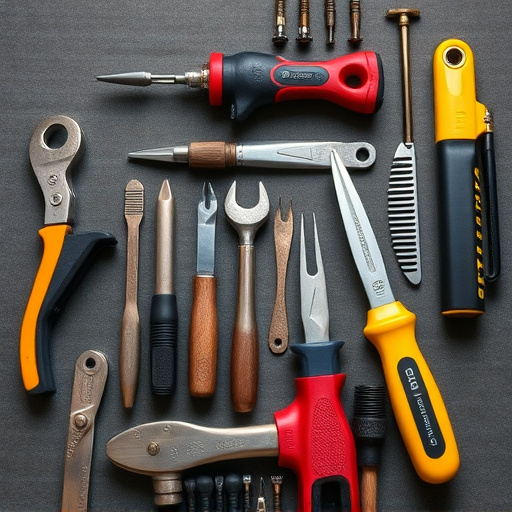
The world of anti-corrosion materials is a vast and ever-evolving landscape, offering innovative solutions to protect against one of the most common—and costly—issues in manufacturing and maintenance. These advanced materials play a pivotal role in preserving structures, vehicles, and equipment over extended periods, thereby significantly reducing long-term maintenance costs. From metal coatings to specialized polymers, each option presents unique advantages tailored to specific environmental challenges.
One notable application of anti-corrosion technology is evident in the automotive industry, particularly in processes like car body restoration and paintless dent repair. For instance, Mercedes Benz collision repair experts utilize cutting-edge coatings that shield vehicles from rust and corrosion, ensuring their longevity on the road. This not only enhances the vehicle’s structural integrity but also maintains its aesthetic appeal, contributing to a better overall customer experience.
Long-Term Savings: Benefits of Incorporating Anti-Corrosive Solutions
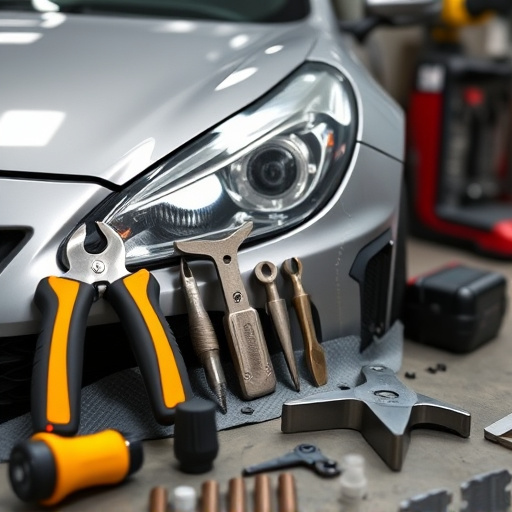
Incorporating anti-corrosion materials into industrial, automotive, or infrastructure projects offers substantial long-term savings. By preventing metal degradation, these solutions significantly reduce the need for frequent repairs and costly replacement parts, especially in harsh environments. For instance, anti-corrosion coatings on vehicle repair and restoration projects can extend the lifespan of vehicles, minimizing maintenance expenses over time. Similarly, in construction, anti-corrosion treatments for steel infrastructure can prevent catastrophic failures, thus saving money that would otherwise be spent on emergency repairs or complete structure replacements.
Beyond direct cost savings, anti-corrosion materials contribute to a more sustainable and efficient operational landscape. They play a crucial role in minimizing waste by delaying the need for frequent material replacement, thereby reducing environmental impact. Moreover, they can enhance productivity as machines and vehicles remain functional longer without interruption due to corrosion-related issues, translating into increased efficiency and better utilization of resources, such as in paintless dent repair scenarios.
Anti-corrosion materials offer a powerful solution for reducing long-term maintenance costs and extending the lifespan of various structures and components. By understanding the enemy within—corrosion—and exploring the comprehensive range of anti-corrosive solutions available, businesses can make informed decisions to protect their assets. Incorporating these innovative materials brings significant benefits, ensuring savings over time while enhancing overall efficiency and sustainability. This shift towards anti-corrosion technologies is a game-changer in many industries, fostering a more robust and cost-effective infrastructure.
